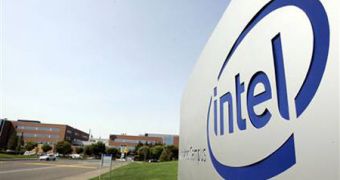As expected, Intel is now being slapped with another Statement of Objections coming from the European Commission, in which the Santa Clara-based chip maker is accused of anti-competitive behavior. However, even if this is not the first time that Intel is facing this type of charges from the European Commission, the company is denying the most recent allegations and is even confident that the European market is working as it should.
This time around, Intel is accused of providing rebates to a retailer that was supposed to sell only Intel-based PCs, of paying an original equipment manufacturer to delay the launch of a line of AMD-based products, and of offering rebates to OEMs, on the condition that they use only Intel chips in their laptops. For those familiar with the matter, the past has seen the chip manufacturer in similar situations as well, but few were the times when actions were taken against it.
"We are confident that the worldwide microprocessor market is functioning normally and is highly competitive in Europe and elsewhere. Intel's conduct has always been lawful, pro-competitive and beneficial to consumers. As evidence of the existence of a highly competitive and innovative microprocessor market, consumers have benefited from prices that have gone down significantly, output has increased many times over, and the performance of products, including ours, has improved exponentially," a spokesperson for Intel said, stressing the fact that not only had the company played by the rules, but also that there was nothing wrong with the market.
On the same note, the company also expressed disappointment towards the Commission's decision of issuing a new SO (Statement of Objections), claiming that said measure was nothing but the Commission showing its support to AMD, by preventing Intel from offering price discounts.
As mentioned before (and also in previous articles), Intel has been accused of such practices all over the world. Nevertheless, so far, only the Fair Trade Commission of the Republic of Korea took the matters one step further by fining the chip manufacturer.

 14 DAY TRIAL //
14 DAY TRIAL //